第35章 The First "Woman's Page," "Literary Leaves," and E
He was again fortunate in that his desk was placed in the advertising department of the house; and here he found, as manager, an old-time Brooklyn boy friend with whom he had gone to school: Frank N.Doubleday, to-day the senior partner of Doubleday, Page and Company.Bok had been attracted to advertising through his theatre programme and Brooklyn Magazine experience, and here was presented a chance to learn the art at first hand and according to the best traditions.So, whenever his stenographic work permitted, he assisted Mr.Doubleday in preparing and placing the advertisements of the books of the house.
Mr.Doubleday was just reviving the publication of a house-organ called The Book Buyer, and, given a chance to help in this, Bok felt he was getting back into the periodical field, especially since, under Mr.
Doubleday's guidance, the little monthly soon developed into a literary magazine of very respectable size and generally bookish contents.
The house also issued another periodical, The Presbyterian Review, a quarterly under the editorship of a board of professors connected with the Princeton and Union Theological Seminaries.This ponderous-looking magazine was not composed of what one might call "light reading," and as the price of a single copy was eighty cents, and the advertisements it could reasonably expect were necessarily limited in number, the periodical was rather difficult to move.Thus the whole situation at the Scribners' was adapted to give Edward an all-round training in the publishing business.It was an exceptional opportunity.
He worked early and late.An increase in his salary soon told him that he was satisfying his employers, and then, when the new Scribner's Magazine appeared, and a little later Mr.Doubleday was delegated to take charge of the business end of it, Bok himself was placed in charge of the advertising department, with the publishing details of the two periodicals on his hands.
He suddenly found himself directing a stenographer instead of being a stenographer himself.Evidently his apprentice days were over.He had, in addition, the charge of sending all the editorial copies of the new books to the press for review, and of keeping a record of those reviews.
This naturally brought to his desk the authors of the house who wished to see how the press received their works.
The study of the writers who were interested in following the press notices of their books, and those who were indifferent to them became a fascinating game to young Bok.He soon discovered that the greater the author the less he seemed to care about his books once they were published.Bok noticed this, particularly, in the case of Robert Louis Stevenson, whose work had attracted him, but, although he used the most subtle means to inveigle the author into the office to read the press notices, he never succeeded.Stevenson never seemed to have the slightest interest in what the press said of his books.
One day Mr.Burlingame asked Bok to take some proofs to Stevenson at his home; thinking it might be a propitious moment to interest the author in the popular acclaim that followed the publication of Doctor Jekyll and Mr.Hyde, Bok put a bunch of press notices in his pocket.He found the author in bed, smoking his inevitable cigarette.
As the proofs were to be brought back, Bok waited, and thus had an opportunity for nearly two hours to see the author at work.No man ever went over his proofs more carefully than did Stevenson; his corrections were numerous; and sometimes for ten minutes at a time he would sit smoking and thinking over a single sentence, which, when he had satisfactorily shaped it in his mind, he would recast on the proof.
Stevenson was not a prepossessing figure at these times.With his sallow skin and his black dishevelled hair, with finger-nails which had been allowed to grow very long, with fingers discolored by tobacco--in short, with a general untidiness that was all his own, Stevenson, so Bok felt, was an author whom it was better to read than to see.And yet his kindliness and gentleness more than offset the unattractiveness of his physical appearance.
After one or two visits from Bok, having grown accustomed to him, Stevenson would discuss some sentence in an article, or read some amended paragraph out loud and ask whether Bok thought it sounded better.To pass upon Stevenson as a stylist was, of course, hardly within Bok's mental reach, so he kept discreetly silent when Stevenson asked his opinion.
In fact, Bok reasoned it out that the novelist did not really expect an answer or an opinion, but was at such times thinking aloud.The mental process, however, was immensely interesting, particularly when Stevenson would ask Bok to hand him a book on words lying on an adjacent table.
"So hard to find just the right word," Stevenson would say, and Bok got his first realization of the truth of the maxim: "Easy writing, hard reading; hard writing, easy reading."On this particular occasion when Stevenson finished, Bok pulled out his clippings, told the author how his book was being received, and was selling, what the house was doing to advertise it, explained the forthcoming play by Richard Mansfield, and then offered the press notices.
Stevenson took the bundle and held it in his hand.
"That's very nice to tell me all you have," he said, "and I have been greatly interested.But you have really told me all about it, haven't you, so why should I read these notices? Hadn't I better get busy on another paper for Mr.Burlingame for the next magazine, else he'll be after me? You know how impatient these editors are." And he handed back the notices.